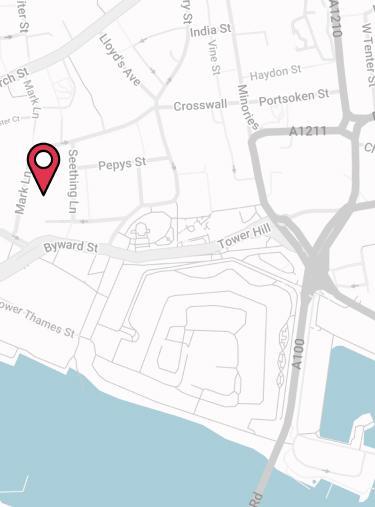It’s commonplace for employees to identify the salary being offered by a company when applying for new positions. But just as important as the remuneration you offer is your Employee Benefits. These play a significant part in the success of your team and your business.
Group Life Insurance is one of these, also known as Death in Service Insurance. But how does it work? What are the benefits of such a policy? And most importantly, how much will it cost your company to set up and offer?
We’ll cover all these questions here and provide all you need to know about Group Life Insurance.
5 Minute Video Guide To Group Life Insurance In The UK
Not got enough time to read our guide, but want a quick specialist overview of Group Life Insurance? Our very own Nick Nelms, gives us the rundown on the key things you need to consider before taking out a policy for your staff. Just hit play! 👇
What Is Group Life Insurance?
As the name suggests, Group Life Insurance covers a group of people under one policy rather than just one individual. It’s a key employee benefit which provides company-paid life cover to staff.
In the event of an employee’s death, the policy would pay out a benefit amount to their nominated beneficiary to provide vital financial support at a difficult time. The payout can be used in any way the recipient sees fit. This might be to:
- Pay off a mortgage
- Cover funeral costs
- Help with everyday expenses.
Why Is Group Life Insurance Important?
Group Life Insurance is one of the most cost-effective employee benefits to offer. This is good news, but it gets better. It’s a benefit that employees actually want.
According to our latest Employee Benefits survey, 25% of employees listed Group Life as a benefit they want their employer to offer. Providing your staff with benefits they actually want not only shows that you listen, but that you care about their wellbeing. This can help when it comes to retaining and attracting top talent. It can also help to foster a positive and loyal culture.
How Does Group Life Insurance Work?
Typically, as an employer, you would take out a Group Life policy as part of a comprehensive employee benefits package. You would purchase a single policy that covers all eligible employees. This often results in lower premiums compared to individual Life Insurance policies.
The amount covered is usually a multiple of an employee’s salary, for example, four times their annual income. In the unfortunate event that an employee who is covered by the scheme passes away, their nominated beneficiary can make a claim. The benefit amount will then be paid tax free, as long as the Group Life policy was set up in a trust.
Types Of Group Life Insurance
With Group Life Insurance, there are two types of policies available to companies. These are Excepted or Registered schemes.
Registered Schemes
The most common type; Registered Group Life schemes are registered with HMRC. When an employee dies, the payout is combined with other HMRC-registered schemes. The payout then counts towards their Pension Lifetime Allowance. The fixed lump sum will remain tax free unless the allowance is exceeded. This type falls under pension legislation.
Registered schemes are the most flexible as they can accommodate staff insured for different benefits under the same policy.
Excepted Schemes
Whereas with Excepted Group Life policies, the payout does not count towards the allowance. This type of policy falls under Life Insurance legislation. Therefore, there are some instances where Inheritance Tax (IHT) charges may apply. Charges may occur:
- On the 10-year anniversary of the trust
- On exit if there is value in the trust (e.g. when an employee dies and the benefit is yet to be paid)
- When the trust is first set up or a member of staff is terminally ill.
Excepted Group Life is often set up for high earners who may exceed the Pension Lifetime Allowance.
Free Cover Limit
When you buy Life Insurance on a group basis, sometimes the insurer will offer a ‘free cover limit’. This is the amount of cover each employee can get before the insurer requests any medical evidence from the individuals.
For example, a Group Life scheme may have a free cover limit of £500,000. If any worker receives over £500,000 in cover, they will have to be medically underwritten to be added to scheme.
Is Your Company Eligible For Group Life Cover?
Before you start the process of setting up a Group Life policy, you need to check if your company is eligible.
You need at least 3 full-time employees to be eligible for a scheme. But there are a few other common requirements. Staff must:
- Be within the minimum and maximum entry ages of the policy
- Have a UK working contract and being eligible to work in the UK
- Be an active employee at the company providing the insurance scheme.
Some employers may include their own eligibility criteria before registering staff. You might decide it’s only available to staff after their probationary period. Or it’s only for those above a certain pay grade, for example.
Got Fewer Than 3 Employees?
If you don’t have the minimum number of staff, the good news is that you can still provide your team with life cover.
Relevant Life Insurance is a perfect solution here. It’s a company-paid policy which can cover a single employee or director rather than a group. It works in the same way as Group Life, but enables businesses to offer protection no matter how small the team is.
For specialist advice on your benefits, please don’t hesitate to get in touch with us. You can pop us a call on 02084327333 or email help@drewberry.co.uk.
Benefits Of Group Life Insurance
Group Life Insurance offers a wide range of benefits for both employers and employees. These benefits include:
Benefits For Employers
Employee Life Insurance policies aren’t only valuable to your staff, they offer plenty of benefits to you, too. Including it in your Employee Benefits package can help to:
- Attract and retain top talent
- Show staff you appreciate more than just their work performance
- Improve employee engagement and productivity
- Reduce stress and related absenteeism.
You’re also in a unique position with Group Life Insurance compared to individual plans. If the level of cover is below the free cover limit, all employees are covered, regardless of pre-existing conditions. You can support employees who may not have been able to get cover on a personal plan due to their previous health.
Benefits For Employees
We know cost is a significant reason why people don’t buy Life Insurance for themselves. By offering group cover and paying for it via your company, it shows staff you care about their wellbeing. It can also help to take some of the financial pressures off them.
Group Life Assurance offers:
- Peace of mind knowing their loved ones are protected if they pass away
- Financial security and wellbeing support for their family
- Cover without having to go through the underwriting process
- Guaranteed cover for pre-existing conditions (this is not always possible with personal plans).
We want to reiterate that most staff are accepted into a scheme without having to disclose any medical information. But only if the level of cover doesn’t exceed the free cover limit.
CLIENT SUCCESS STORY!
Profile Pensions, a pensions firm, saw Group Life Insurance for their team as a no brainer. Our team arranged a policy for its 75 employees, which has proven to be excellent for them.
What Does Group Life Insurance Cover?
The sum covered by a Group Life policy is often based on a multiple of the employee’s salary, such as 2, 3, or 4 times their annual pay. As the employer, you have the flexibility to decide how much cover to offer your staff.
Most plans cover between 2 and 4 times the employee’s Basic Annual Salary, but some policies can go as high as 15 times. A policy generally covers most causes of death, so employees don’t have to be at work or even on the clock for their beneficiaries to successfully make a claim.
Group Life Insurance Exclusions
That said, there are several reasons why a Group Life Assurance claim won’t pay out. This includes death caused by:
- Suicide
- Alcohol / drug abuse
- Dangerous sports / hobbies
- Pursuit of criminal activity.
Additional Benefits & Support Services
Besides the death benefit, there are many wellbeing services insurers usually offer free with their policies. These support services may include:
These provide everyday value to your staff beyond the initial Company Life sum. Setting up a group policy with an insurer that offers benefits like these shows employees you’re there to support them.
Will it cover employees working abroad?
Yes, employees are often covered for both business trips overseas, as well as holidays.
But if you have staff who regularly work overseas in any areas deemed as high risk, it could affect the cost of the plan. High-risk areas might include those with active conflicts, epidemics, or terrorist threats. It could also impact which insurance company is available to you.
What is the free cover limit?
The Free Cover Limit (FCL) is the maximum amount of cover each policy member can have before they’ll need medical underwriting.
It’s set quite high, so only employees with the largest benefit will typically need medical underwriting. In most cases, it’s rare to exceed the FCL, but it’s important to be aware of.
What happens when an employee leaves the company?
If an employee leaves your employment, their Life Insurance ceases. This is the case if they leave on their own accord, retire, or get made redundant. They may be able to continue coverage elsewhere on an individual basis, but this will be at the discretion of the insurer.
For this reason, it shouldn’t be relied on as the core foundation of an employee’s protection. They may not always have company-paid Life Insurance, which is why so many of our clients opt for a personal policy alongside their group one.
How many employees do you need for Group Life Insurance?
To be eligible for Group Life Insurance, you will need at least 3 employees. This is the minimum requirement requested by most UK insurers.
Should you have less than 3 employees, you should consider Relevant Life Insurance. This works the same as Group Life and offers the same benefits, but is designed for individuals rather than groups of employees.
Group Life Insurance And Trusts
You might have seen the word ‘trusts’ during your research into Group Life Insurance. This is an essential part of the policy, in which assets are managed by one person or people (the trustees).
Is A Trust Necessary?
Yes. Writing the policy into ‘trust’ means that the payout is separate from your business. It also benefits your employees, as their loved ones can avoid paying Inheritance Tax (IHT) on the benefit.
When written into a trust, the lump sum benefit is not included in the individual’s estate. Their family members will receive the full benefit and won’t have to pay any IHT.
There are two ways of putting the policy into a trust:
- Do it yourself as the employer
This provides you with full control. You are responsible for fulfilling all duties related to the trust, including HMRC registration
- Use the insurer’s master trust
Master trusts are pre-set up trusts managed by the insurer for many companies at the same time. Employers will have less admin to do but lose some control over setup and management.
An Employer’s Trust Or The Insurer’s Master Trust? Which One?
The best way to write your Group Life policy into trust depends on your business. We tend to find most employers opt for the master trust option for convenience reasons. The insurer will handle everything on your behalf and ensure legislation is adhered to.
Employer Established Trusts
- Step 1: Execute a trust deed
Insurers typically provide you with model trust deeds to use, but you may wish to refer this trust to your legal advisers. The policy cannot start prior to the execution of the trust deed
- Step 2: Register the scheme administrator with HMRC
The trust deed appoints a scheme administrator who will need to register as the administrator with HMRC. This can take a few days if the chosen administrator has never previously registered as such with HMRC
- Step 3: Register the scheme
Once the administrator is appointed, it’s time to register the scheme with HMRC. This will provide you with a Pension Scheme Tax Reference Number, which will need to be attached to the executed trust to start the policy.
Master Trusts
As master trusts are already set up for companies to use, there’s no need for you to set up a trust of your own. Master trusts take care of several businesses’ policies at the same time.
All admin tasks involved with the trust are taken care of by the independent scheme trustees, including:
- Following the rules of the trust
- Managing the employee’s expression of wish and determining beneficiaries
- Reporting to HMRC.
This is, however, an option that doesn’t offer much personalisation to companies. Depending on your business needs, you may prefer to set up your own trust. Regardless of which trust type you choose, it must be set up before the start of the Group Life policy.
IMPORTANT NOTICE❗️
We always recommend you seek legal advice before participating in a master trust to ensure it’s right for your company.
How Much Does Group Life Insurance Cost?
There isn’t a straightforward answer to this. The cost depends on your cover options and your team demographics. Generally, a large group policy costs less than a company wanting cover for only a few members of staff. This is down to economies of scale.
There are several factors that impact the price of a policy, including:
- Staff salaries and the level of cover
Insurers need this to work out how much you want to insure each person for and price the policy accordingly
- Your industry and occupation
The risks associated with your industry are taken into account. There are occupations (e.g. manual work, working at heights or underwater) that are riskier than others, such as office-based jobs. Construction workers, for example, will cost more to insure
- Employees’ ages
The older your employees, the more you’ll pay for Death in Service Insurance. This is because our health can deteriorate as we age. And as a result, older employees are more likely to make group life claims
- Group size
Large group schemes get cover for less in terms of cost per employee due to economies of scale
- Work location
Location matters as different areas have different life expectancies, which can impact the length of cover
- If employees are actively at work
Any member of staff who isn’t ‘actively at work’ (e.g. on long-term leave) during the policy’s inception will not get covered.
Average Cost Of Group Life Insurance In 2026
To give you a basic idea of how much a Group Life Insurance policy could cost, we’ve got some examples for you. These are quotes for different clients with Death in Service Insurance.
The first example is a small software development firm. The second one is for a larger hospital service company.
While we will need to tailor quotes to your business, these examples show the differences in price.
If you’d like some help to compare Group Life Insurance quotes, we’re here to help. We know these policies and insurers like the backs of our hands, so we’re best placed to support you.
Please don’t hesitate to get in touch with us! Give us a call on 02084327333 or email help@drewberry.co.uk. Our specialists have helped many businesses like yours set up their employee benefits.
How Is It Taxed By HMRC?
Life Insurance is a tax-efficient employee benefit to provide to your workforce. As you’ll pay for premiums through your company, HMRC sees it as a business expense. So, you’ll receive tax relief on the company’s corporation tax bill. This applies to both Group Life and Relevant Life policies.
Setting up Company Life Insurance in a trust means employees’ families avoid paying any Inheritance Tax (IHT). When they pass away, the lump sum benefit doesn’t count towards their estate, making it exempt from IHT.
Is Group Life Insurance A P11D Benefit?
HMRC does not consider Group Life a P11D / Benefit in Kind, unlike Health Insurance. Therefore, staff do not have to pay any extra Income Tax on the benefit provided to them by you.
Who Are the Best UK Group Life Insurance Providers In 2026?
We’re an independent insurance broker with access to every UK insurer on the market. As each insurer is different, it’s hard to say who is the ‘best’ per se. It really depends on your business and its specific needs.
Some insurers prefer to provide cover to staff in low-risk roles. Others are better suited for small businesses, for example.
For this reason, we always compare Life Insurance quotes from all the leading insurers. We can do this for you on your behalf to help find the most suitable cover for your employees.
The insurers we work with most include:
- Aviva
- Canada Life
- Legal & General
- MetLife
- Unum.
We want to find the best policy for your company, so we always take a look at the free extra benefits insurers offer with their product. Whether that’s a remote GP service or an Employee Assistance Programme, you’re sure to be getting the most out of the policy.
Once we’ve got quotes, we’ll send you a personalised report summarising our research. This will lay out which of the top UK insurers we think is right for you and your staff.
Where Does It Fit With Other Employee Benefits?
Group Life Insurance tends to be one of the first benefits a company introduces. This is because it’s affordable for most businesses, yet it provides high value to staff.
It also provides a solid foundation for you to introduce other valuable Employee Benefits. You might look to set up:
- Group Critical Illness Cover
Group Critical Illness pays a tax-free lump sum payment if a worker develops a critical illness, such as cancer, heart attack or stroke
- Group Income Protection
A Group Income Protection Scheme works with your company’s sick pay policy to offer staff a monthly income if they’re medically unfit to work
- Business Health Insurance
Business Health Insurance Plans pay for private healthcare, offering your staff the best treatment when they need it most. It can support their physical wellbeing as well as their mental health
- Corporate Health Cash Plans
A Health Cash Plan is an alternative to Company Health Insurance. This provides your staff with financial support for dental treatment, eye tests, and money towards the price of prescription glasses.
What's the difference between group and personal Life Insurance?
The main difference is that Group Life is paid for by the employer. This places the employer in control of the level of cover and length of the policy.
A personal plan is set up and paid for by the individual. Premiums are taken from their own bank account.
It’s possible to be a member of a group plan as well as a personal Life Insurance policy. In fact, it’s recommended, as a group scheme may not provide enough cover for their dependents.
Staff can’t always guarantee that they’ll have group life cover protecting them. A personal policy is managed on an individual basis, helping to cover mortgages and any other debts.
Does Death in Service Insurance cover pre-existing medical conditions?
In most cases, yes. Group Life Assurance can cover workers with pre-existing conditions.
Unless your level of cover exceeds the free cover limit, staff are added to the scheme without any medical underwriting. This means that all pre-existing conditions, no matter when they suffered from it, will be covered.
This is useful for those with pre-existing issues, as a personal policy will be underwritten and face exclusions.
Are there any standard exclusions?
Group Life tends to have the same exclusions as personal Life Insurance policies. This includes suicide and death caused by dangerous hobbies.
Your company policy will cover most causes of death. A worker’s death doesn’t have to occur on work premises or be related to work to make a claim.
What is meant by beneficiaries?
With a Life Insurance policy that is written into trust, the policyholder will nominate a beneficiary, or multiple. This is who they want to receive the payout upon their passing.
For example, a staff member could list their spouse, children, or other dependents as their beneficiaries. Then, when it comes to making a claim, the trustees will refer back to the nominated beneficiaries and manage the payout appropriately.
Compare Company Life Insurance Quotes & Get Specialist Advice
Setting up a competitive benefits package can be a bit of a headache, especially as a busy business owner. This is where we can help. Our team at Drewberry™ can do the heavy lifting for you, helping you to find the most suitable benefits for your staff.
We’re here to help you set up and manage your Employee Benefits, so that you can continue doing what you’re best at: running your business. You needn’t worry about tonnes of paperwork as we’ll take it off your desk!
For specialist advice on your Group Life Assurance, don’t hesitate to give us a call on 02084327333. You can email help@drewberry.co.uk too.
Why Speak to Us?
Employee benefits can be a headache. But our specialists do this day-in, day-out, offering first class service when you need it most. Here’s why you should talk to us:
- Award-winning independent employee benefits consultants, working with leading UK insurers and benefit providers
- Assigned specialist on hand to help – every step of the way
- 4100 and growing independent client reviews rating us at 4.92 / 5
- Authorised and regulated by the Financial Conduct Authority. Find us on the financial services register
- Claims support when you need it most.









